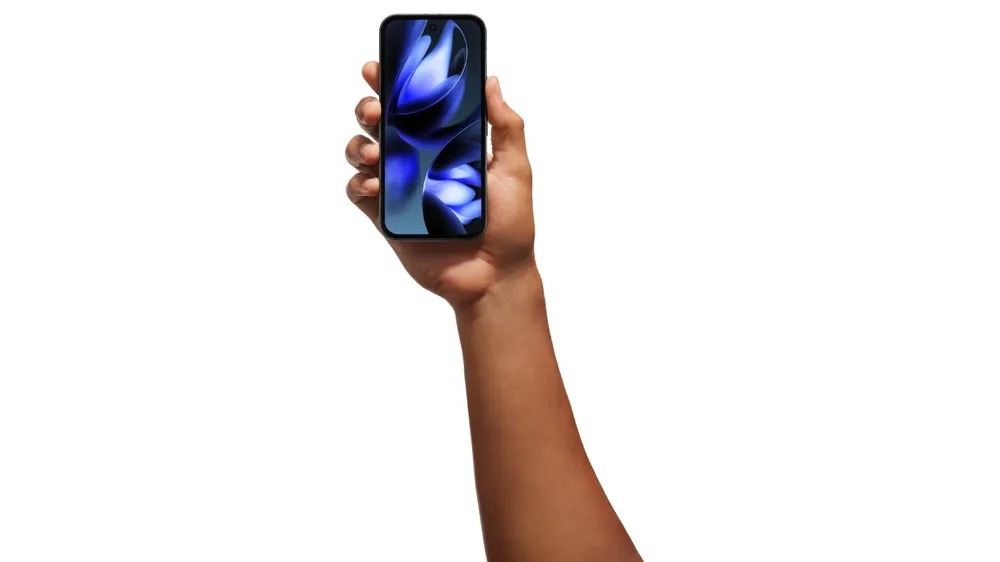What will the future of Meta Quest headsets look like?
Beyond Meta Connect 2024, here's a peek into the future of Meta Quest headsets
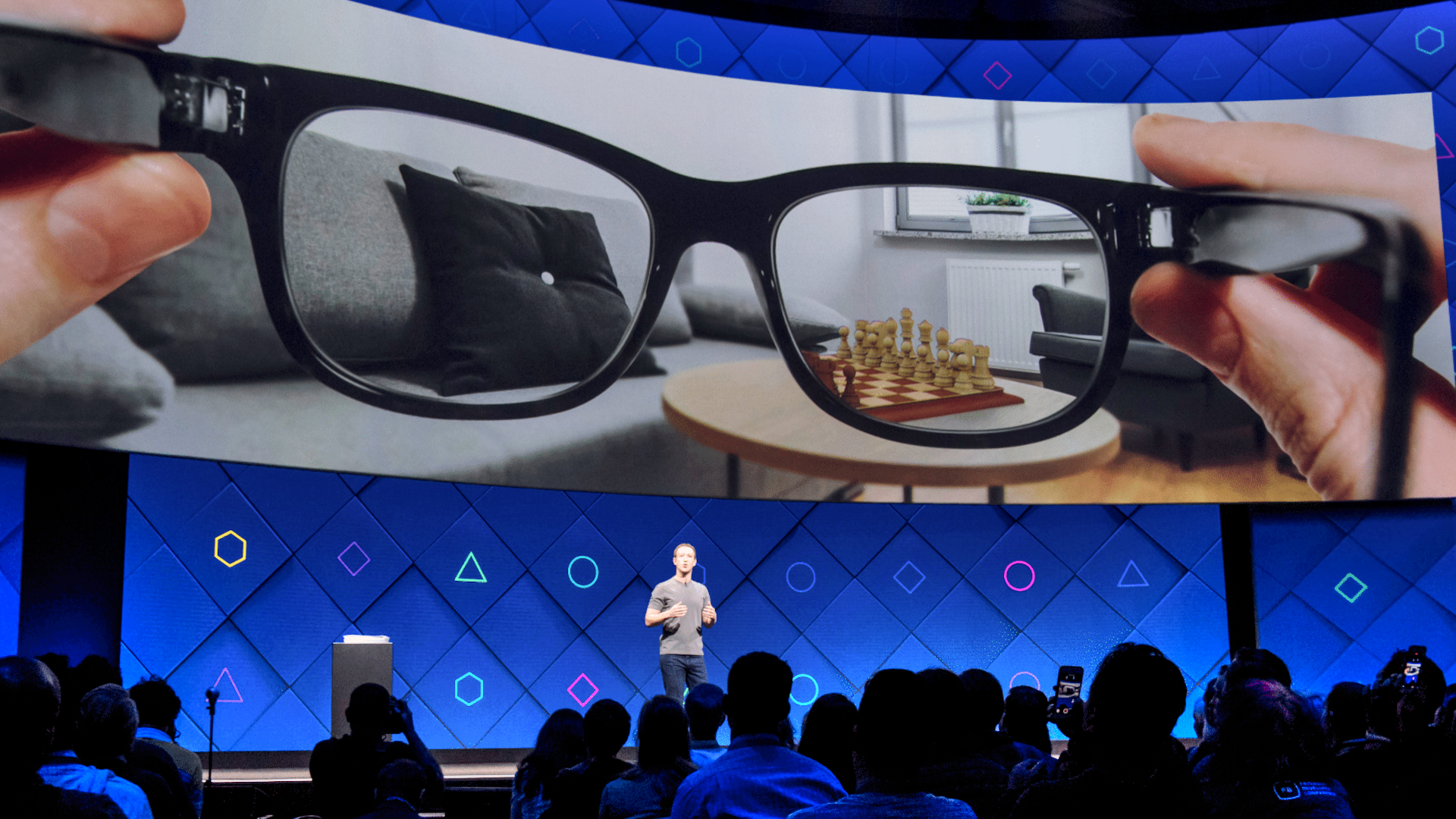
Meta Connect 2024 is scheduled to take place from September 25-26, and it's here that we'll reportedly see a brand new Meta Quest VR headset and gain a glimpse of Meta's long-term goals in the VR/AR space via the company's prototype Orion AR smart glasses.
But this is only a slice of what the future could hold, and Meta is continuously working on projects behind the scenes to propel its vision ambition over the coming years. Unsurprisingly, this will lead Meta down two paths simultaneously: headsets and smart glasses.
Meta's success in VR/AR headsets is well established, with the Quest 2 making up the majority of the company's 20+ million headset sales to date. However, its smart glasses are still a budding product, yet to fully realize their potential.
At some point, Meta intends to merge both of these product lines and completely reinvent the Quest experience as we know it. It may well drop the Quest moniker, but its lineage will be clear, even if it will be mostly unrecognizable compared to today's headsets.
Let's look at what's in store for the Meta Quest on that journey, and how Meta seeks to shape this future-gen VR/AR headset over the coming years.
Meta Quest headsets: The path ahead
Following last year's focus on Meta AI, the Meta Quest 3 and Ray-Ban Meta Smart Glasses, this year's Meta Connect event will reportedly showcase further Meta AI advancements alongside the fruits of Meta's labor on its "Ventura" headset — a more accessible version of the Meta Quest 3 that we now believe to be called the Meta Quest 3s.
Meta Quest 3s
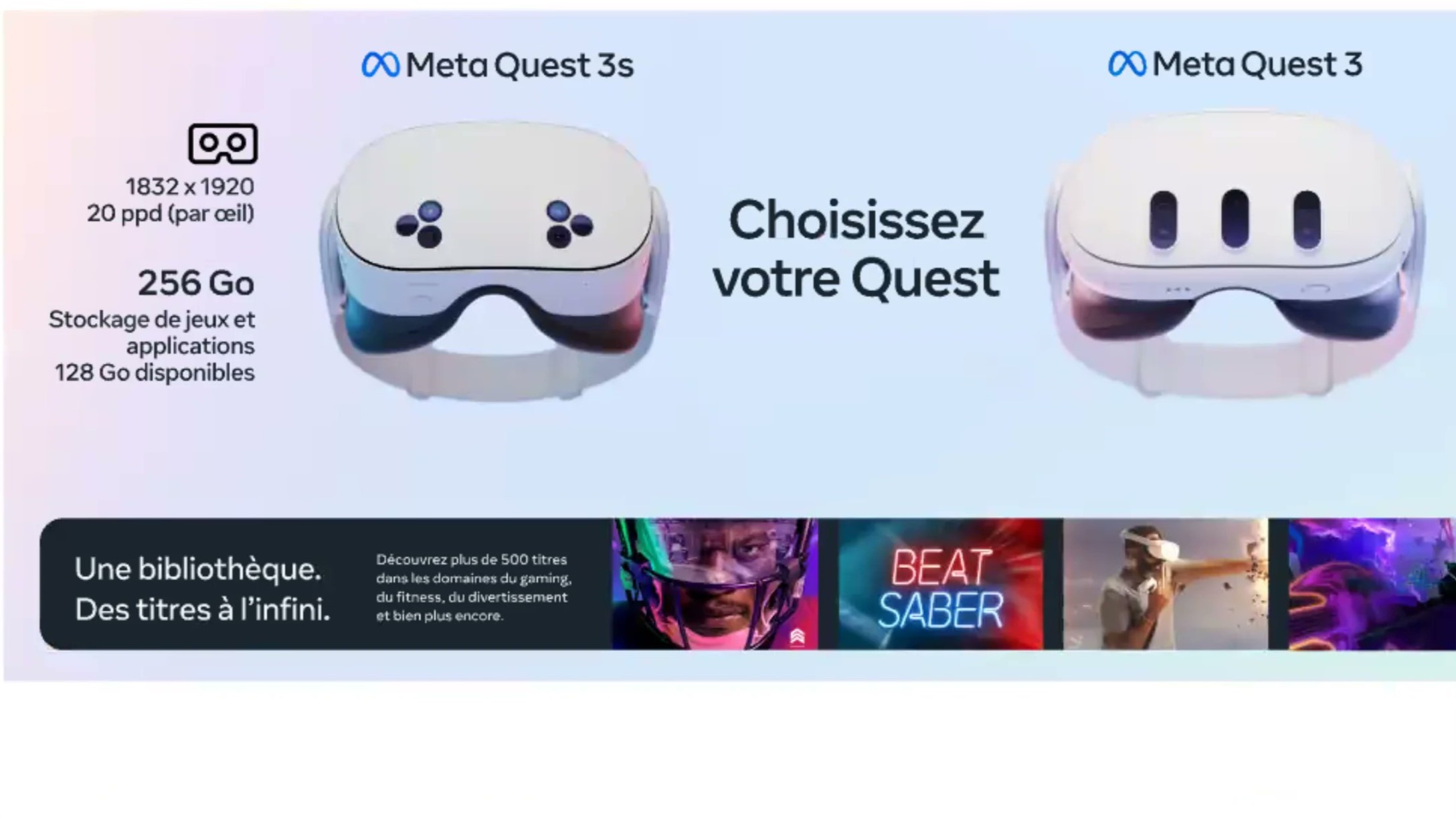
According to a leaked VR roadmap presentation, VP of VR/MR for Meta, Mark Rabkin states that the Quest 3s is designed to "pack the biggest punch we can at the most attractive price point in the VR consumer market." Meta is seeking to put Quest headsets in more hands and this strategy is a part of the company's overall desire to improve user engagement and the adoption of VR.
Stay in the know with Laptop Mag
Get our in-depth reviews, helpful tips, great deals, and the biggest news stories delivered to your inbox.
While the tech housed within Quest headsets is impressive, and offers the best standalone AR/VR experience through Horizon OS, user retention has been a constant thorn in the side for Meta. A cheaper headset is part one of the company's pitch to attract more users, but its software ambitions hope to keep them coming back for more.
More high-profile games
Throughout the remainder of 2024, Quest headsets will receive the most high-profile gaming attention to date through releases such as Batman: Arkham Shadow, Alien: Rogue Incursion, Hitman 3 VR: Reloaded, and Skydance's Behemoth to name a few — many of which will be exclusive to the Quest platform.
It's the culmination of a one-two-punch combo from Meta that seeks to establish the Quest as a go-to destination for immersive gaming and a platform rich in content for gamers to return to for years to come.
Our first look at 'Orion' smart glasses?
This year's Connect event could also give us a glimpse at the product that ends this roadmap, Orion. Reportedly, Meta is hard at work on a prototype of "true" AR smart glasses that will revolutionize how we interface with our tech and the world around us.
These Orion smart glasses are somewhat ahead of their time though, and at the moment don't make for a cost-effective product. Nor is the wider smart glasses market really ready for such a device, needing time to mature and build a more prominent mainstream audience before such a device would be truly marketable — lest Meta fall into the same pitfalls as Apple's Vision Pro or Google Glass.
If we do see Orion at Connect 2024, we'd expect it to be a short demonstration of what will eventually be possible. At most, a vertical slice of Meta's eventual ambitions for the combination of AR and wearables through the smart glasses form factor.
What's next for Meta?
Third-generation Meta smart glasses
During the same leaked roadmap presentation, Meta's VP for AR, Alex Himel, took things over to talk about the company's third-generation of smart glasses which will slowly begin to implement augmented reality into its feature set by use of what Meta refers to as a "viewfinder."
This viewfinder is likely a low-FoV (field of view) lens-hosted display panel that will reportedly allow wearers to view incoming texts, translate text visually, and even scan QR codes by sight. I'd expect it to resemble a modern and more affordable version of the North Focals smart glasses, released in 2019.
Neural interfaces and smartwatches
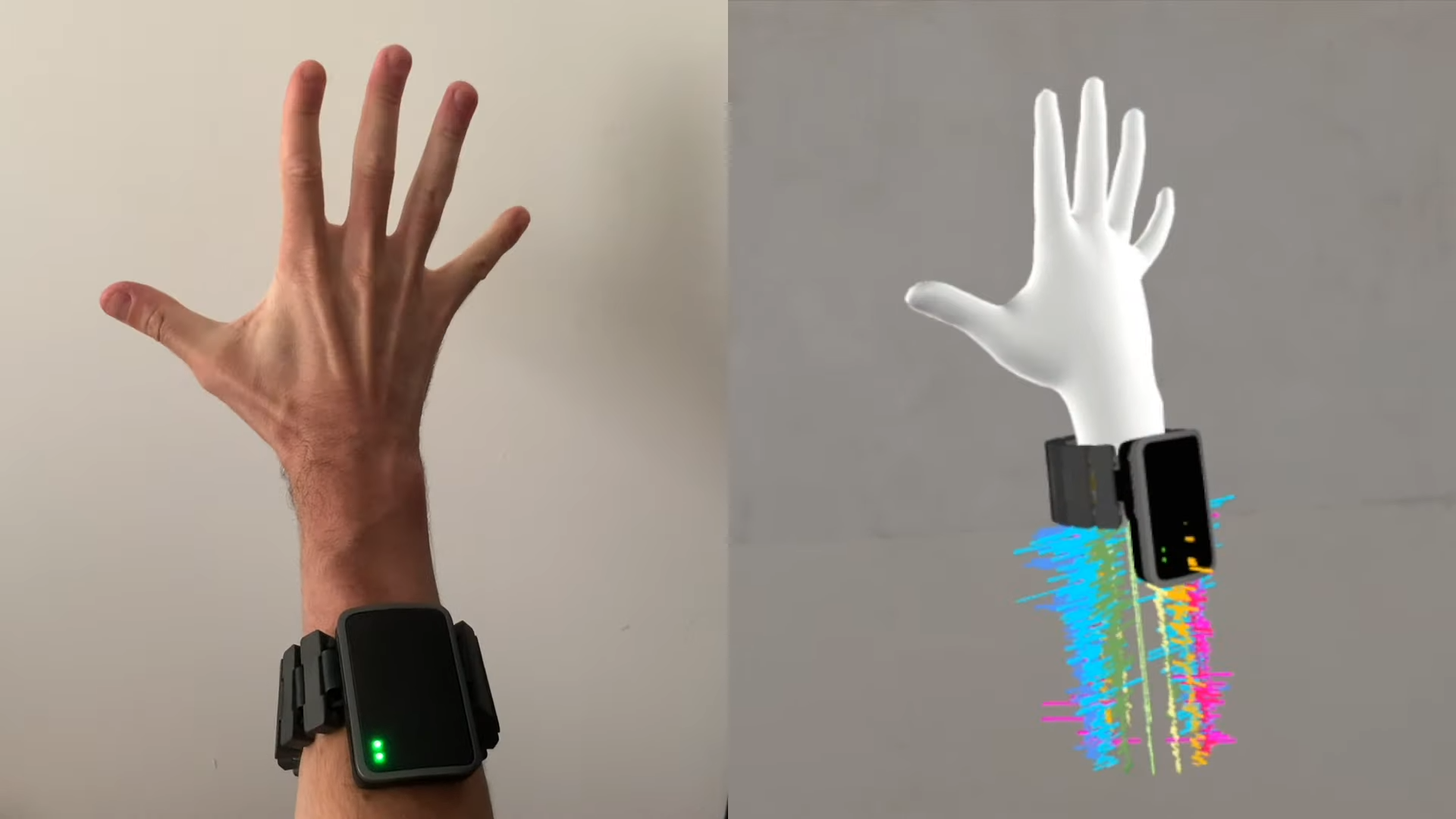
The aforementioned third-generation of Meta's smart glasses are said to come with a new "neural interface" band for controlling on-screen elements using hand gestures in a way that doesn't require tracking cameras.
It's unsure what form these neural interface bands may eventually take, but reputable leaker Evan Blass appears to have caught wind of several upcoming Meta products, with one of them potentially being a smartwatch — something Himel also brought to light during his section of the leaked roadmap, stating "we are building a neural interfaces watch ... this device will do input: input to control your glasses, input to control the functionality on your wrist, and input to control the world around you.”
These neural interfaces will play a pivotal role in future Meta products when it comes to both AR and VR devices, not only being an all-new wearable for the company to add to its catalog but also as an eventual replacement for controllers.
Meta's Spatial Labs team has shown off this tech previously, though more recently Meta CEO Mark Zuckerberg spoke about a similar prospect during an appearance on Morning Brew Daily, suggesting that the company's next-gen hand-tracking tech uses electromyography to detect electrical signals passing through your arm.
Meta Quest headsets: The not so distant future
Meta Quest 4 and 'Puffin'
In the interim between Meta's third-gen smart glasses and Orion's eventual release, we're also likely to see the company return to headsets for the Meta Quest 4. Little is known about the Quest 4 as of yet, but we have been privy to leaked information that suggests it could be released at some point in 2026.
The same leak also details a recently greenlit project using the codename Puffin that will take the place of the now-canceled Meta Quest Pro 2. However, instead of it being a high-spec headset, Puffin is claimed to be a lightweight Quest headset that resembles a "bulky pair of glasses." It's likely that Puffin could be Meta's first attempt at combining elements of both its headset and smart glasses lineup into a single product.
Said to weigh only 110 grams, Puffin is suggested to include a tethered cable that leads to a puck-like device that houses the device's computer and battery — not all that dissimilar to modern AR glasses.
However, where Puffin differs from those project-based options, is that it features opaque pancake lenses in its frames that deliver passthrough vision using the device's onboard cameras. They'll be able to deliver a wider field of view than current-day alternatives and effortlessly integrate AR content into what you see around you in a more convincing and immersive manner.
Its opaque lenses, and the fact that the leak refers to Puffin as a Quest headset, also suggests that these glasses will be able to provide immersive VR content as previous models have, while also providing a wearable that's comfortable to use throughout the day and discrete enough to wear in public without drawing too much attention.
Meta's Orion smart glasses
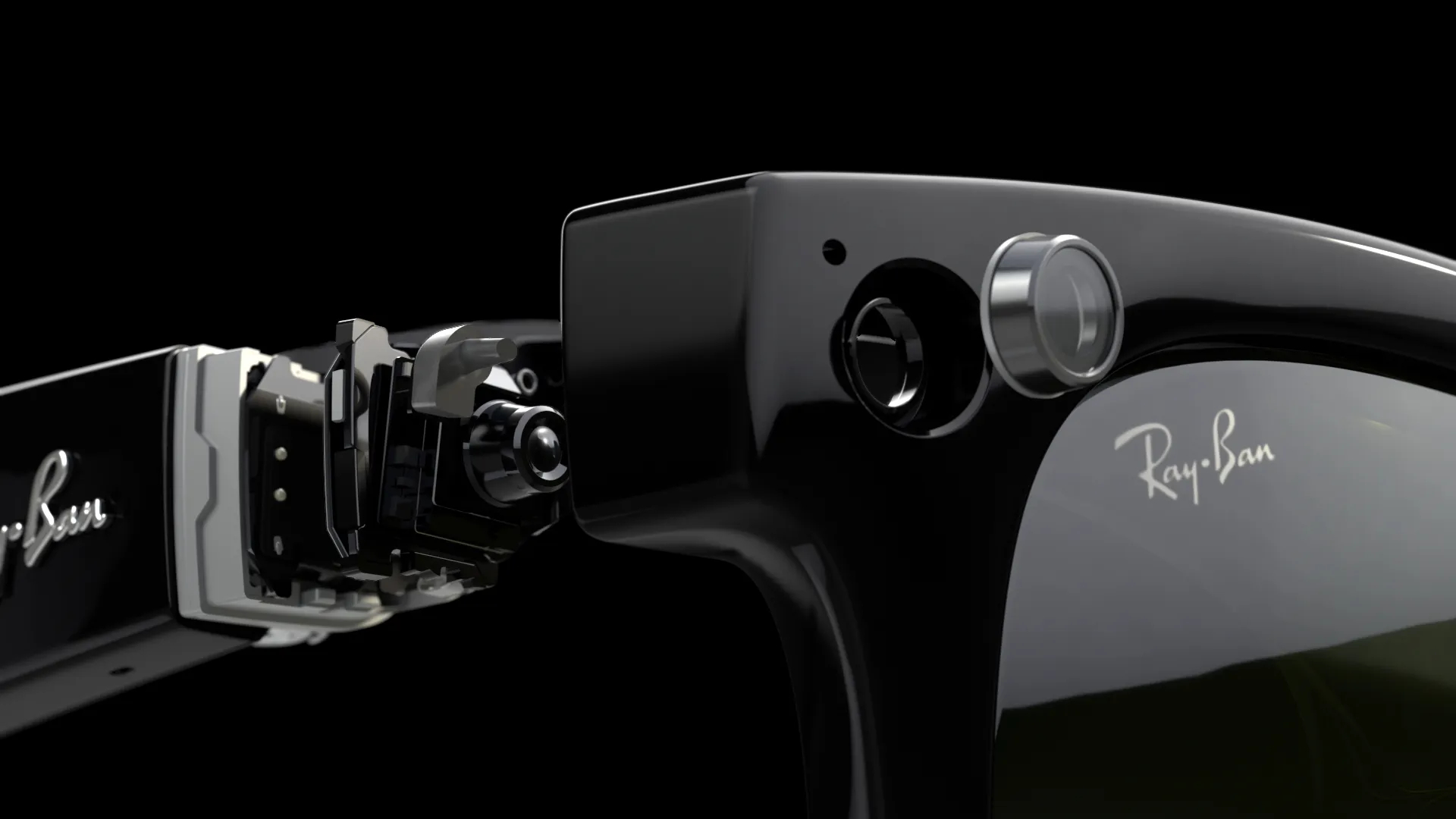
Following Meta's work on Puffin, the doors will be wide open to eventually render its Orion glasses as a fully fleshed-out product. Not only that, but by the time these "true" AR smart glasses make it to market, their currently expensive components may potentially be more affordable, and bring the currently high cost of production down by a significant margin.
Orion will also have had time to learn from the company's past efforts with its third-generation smart glasses, the release of the Quest 4, and potentially all that is worked on with Puffin — even if that device never comes to fruition as a realized product itself.
How Orion might shift in direction over the years remains to be seen, but with a release window targeting 2027 to the end of the decade, it's these glasses that have been referred to by Meta CTO Andrew "Boz" Bosworth as "the most advanced thing that we’ve ever produced as a species," at least in the realm of consumer electronics.
Meta likely sees Orion as not just an opportunity to pool both its headset and smart glasses lines into one versatile product, but also as the best fit for Mark Zuckerberg's grand vision for smart glasses overall. Orion is what Zuckerberg refers to as a "holy grail" and a potentially groundbreaking iPhone-like moment that could see this wearable overtake our reliance on smartphones.
More from Laptop Mag

Rael Hornby, potentially influenced by far too many LucasArts titles at an early age, once thought he’d grow up to be a mighty pirate. However, after several interventions with close friends and family members, you’re now much more likely to see his name attached to the bylines of tech articles. While not maintaining a double life as an aspiring writer by day and indie game dev by night, you’ll find him sat in a corner somewhere muttering to himself about microtransactions or hunting down promising indie games on Twitter.
